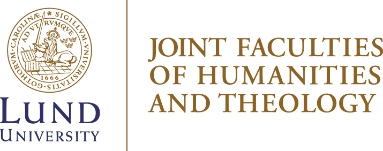Feb
Transnational repression: Debates and challenges for research

A global trend that has drawn increasing attention among scholars, governments and human rights organisations in recent years is the ability of autocratic regimes to extend their control and suppress criticism and dissent beyond their national borders.
Transnational repression can take different forms, such as surveillance, disinformation campaigns, online harassment, and threats to activists, diaspora groups, students and their families at home, and in some cases includes more violent acts, such as kidnappings and killings.
Scholars coming from the field of political science, international relations and law have analysed this phenomenon using different definitions, theories and methodological approaches, including fieldwork and interview-based methods, surveys, and cross-national event case data. They have studied the reasons behind these repressive tactics, those targeted, and their forms of resistance. Increasingly, advocates and policymakers have also tried to come up with options to respond to and counteract transnational repression. Welcome though such attempts are in principle, they can also present new risks and produce unintended consequences, such as the stigmatisation of citizens from autocratic countries and/or chilling effects on vitally important debates. It is all the more important that we consider what is normatively at stake in transnational repression contexts.
In her talk on how (not) to counter transnational repression, Professor Eva Pils of King’s College London will provide a critical evaluation of the debate about transnational repression as well as proposed responses. Drawing on examples of the People’s Republic of China’s and other countries’ transnational repression activities, she will argue that responses should be centred in the state’s obligation to respect and protect human rights.
Discussant Professor Bo Petersson, Malmö University.
Suggested readings:
Alexander Dukalskis, Saipira Furstenberg, Yana Gorokhovskaia, John Heathershaw, Edward Lemon & Nate Schenkkan (2022) “Transnational repression: data advances, comparisons, and challenges,” Political Research Exchange, 4:1, DOI: 10.1080/2474736X.2022.2104651
Freedom House (2022), Defending Freedom in Exile: Understanding and Responding to Transnational Repression, https://freedomhouse.org/report/transnational-repression
Bio:
Eva Pils is Professor of Law at King's College London, an affiliated scholar at the US-Asia Law Institute of New York University Law School, and an external member of the Centre for Human Rights Erlangen-Nürnberg. She studied law, philosophy and sinology in Heidelberg, London and Beijing and holds a PhD in law from University College London. Her current research addresses autocratic conceptions and practices of governance, legal and political resistance, and forms of complicity with autocratic wrongs. Before joining King’s in 2014, Eva was an associate professor at The Chinese University of Hong Kong Faculty of Law.
Bo Petersson is Professor of Political Science at the Department of Global Political Studies at Malmö University. Since 2016, together with Professor Karina Vamling, he has been the director of the research platform RUCARR - Russia, Ukraine and the Caucasus Regional Research at the Faculty of Culture and Society. He is a member of the editorial board for the journal Communist and Post-Communist Studies. His research addresses contemporary Russian politics, authoritarian systems, and the spread of non-democratic and illiberal norms.
About the event:
Location: Asia Library, Centre for East and South-East Asian Studies, Sölvegatan 18 B, Lund
Contact: marina.svenssonace.luse
